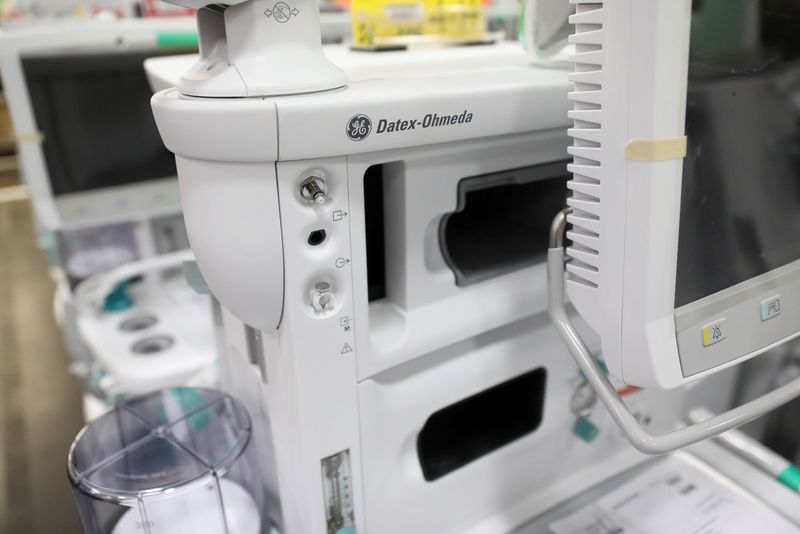Five things to watch in markets in the week ahead
Investing.com -- GE HealthCare Technologies Inc. reported second-quarter earnings that surpassed analyst expectations on Wednesday, as the medical technology company delivered solid revenue growth and raised its full-year outlook, sending shares up 3.5% in premarket trading.
The company posted adjusted earnings per share of $1.06, exceeding the analyst consensus of $0.92, while revenue reached $5.0 billion, slightly above the $4.97 billion analysts had expected. Revenue increased 3% YoY, or 2% on an organic basis, driven by strength in the U.S. and European markets.
GE HealthCare (NASDAQ:GEHC) raised its full-year 2025 guidance, now projecting organic revenue growth of approximately 3%, up from its previous forecast of 2% to 3%. The company also boosted its adjusted EBIT margin outlook to 15.2% to 15.4%, compared to its earlier guidance of 14.2% to 14.4%, and increased its free cash flow target to at least $1.4 billion from $1.2 billion previously. Adjusted EPS is expected to be in the range of $4.43 to $4.63, which includes approximately $0.45 of tariff impact. This compares to the previous Adjusted EPS guidance in the range of $3.90 to $4.10.
"We were pleased with solid orders and revenue performance in the second quarter across all segments, reflecting healthy customer investment in capital equipment," said GE HealthCare President and CEO Peter Arduini. "We also reported strong earnings performance while leveraging our lean capabilities and demonstrating progress on tariff mitigation."
The company’s Pharmaceutical (TADAWUL:2070) Diagnostics segment was the standout performer, with revenue jumping 14% YoY to $729 million. The Imaging segment, the company’s largest by revenue, saw a 2% increase to $2.2 billion.
GE HealthCare reported a book-to-bill ratio of 1.07 times, with total company orders increasing 3% organically YoY, suggesting continued momentum heading into the second half of the year.
Net income margin improved to 9.7% from 8.9% in the prior year, though adjusted EBIT margin declined to 14.6% from 15.3%, primarily due to tariff impacts that were partially offset by productivity improvements and higher volumes.
